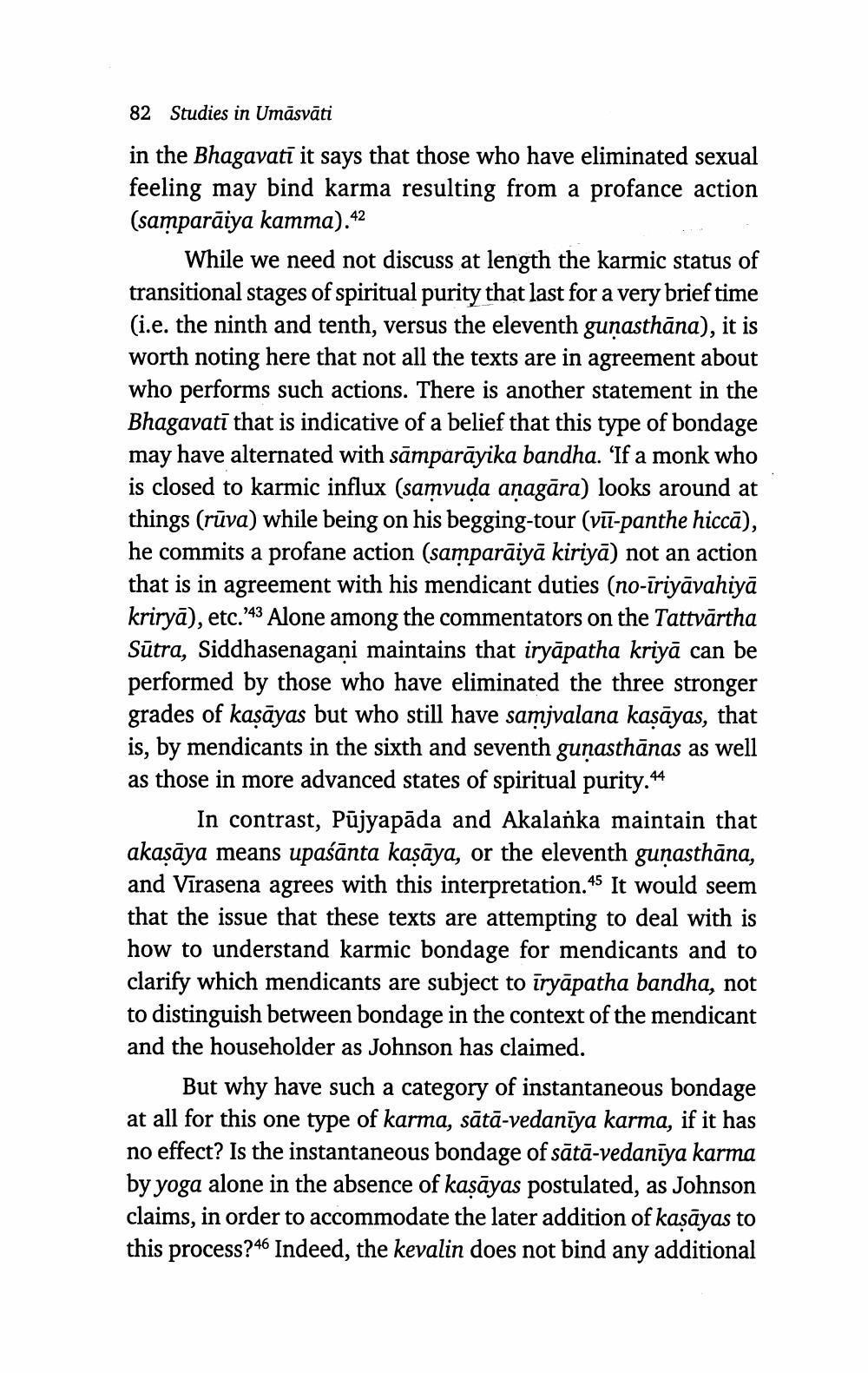________________
82 Studies in Umāsvāti
in the Bhagavatī it says that those who have eliminated sexual feeling may bind karma resulting from a profance action (samparāiya kamma). 42
While we need not discuss at length the karmic status of transitional stages of spiritual purity that last for a very brief time (i.e. the ninth and tenth, versus the eleventh guṇasthāna), it is worth noting here that not all the texts are in agreement about who performs such actions. There is another statement in the Bhagavatī that is indicative of a belief that this type of bondage may have alternated with sāmparāyika bandha. 'If a monk who is closed to karmic influx (samvuda aṇagāra) looks around at things (rūva) while being on his begging-tour (vīī-panthe hiccā), he commits a profane action (samparāiyā kiriyā) not an action that is in agreement with his mendicant duties (no-īriyāvahiyā kriryā), etc.43 Alone among the commentators on the Tattvārtha Sūtra, Siddhasenagani maintains that iryāpatha kriyā can be performed by those who have eliminated the three stronger grades of kaşāyas but who still have samjvalana kasāyas, that is, by mendicants in the sixth and seventh gunasthānas as well as those in more advanced states of spiritual purity. 44
In contrast, Pūjyapāda and Akalanka maintain that akaṣāya means upaśānta kasāya, or the eleventh gunasthāna, and Virasena agrees with this interpretation.45 It would seem that the issue that these texts are attempting to deal with is how to understand karmic bondage for mendicants and to clarify which mendicants are subject to īryāpatha bandha, not to distinguish between bondage in the context of the mendicant and the householder as Johnson has claimed.
But why have such a category of instantaneous bondage at all for this one type of karma, sātā-vedanīya karma, if it has no effect? Is the instantaneous bondage of sātā-vedanīya karma by yoga alone in the absence of kasāyas postulated, as Johnson claims, in order to accommodate the later addition of kasāyas to this process?46 Indeed, the kevalin does not bind any additional




